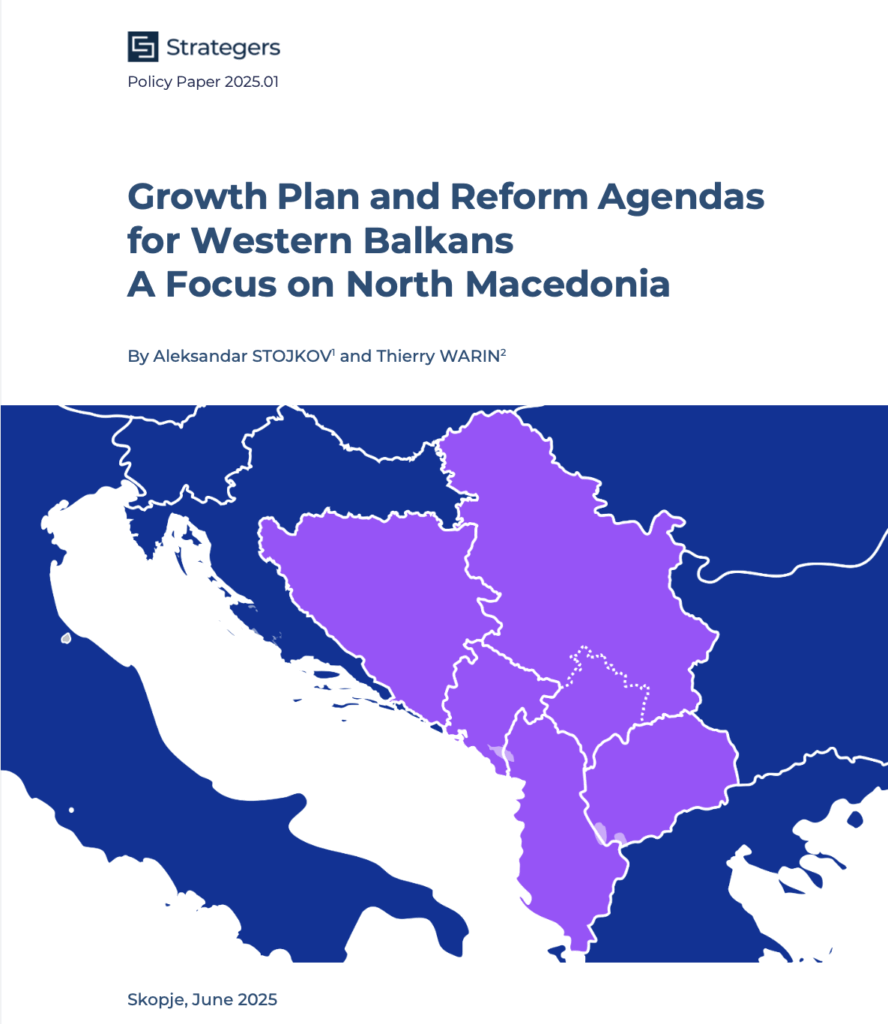Growth Plan and Reform Agendas for Western Balkans: A Focus on North Macedonia
Executive Summary
In May 2023, the European Commission launched a comprehensive Growth Plan for the Western Balkans, aiming to rejuvenate the region’s European integration trajectory. This initiative is particularly significant for North Macedonia, whose path toward EU membership has been marked by prolonged delays and political uncertainties. The renewed European commitment addresses a dual challenge: the enlargement fatigue within the EU and the corresponding accession fatigue among Western Balkan nations.
The Growth Plan aims to substantially narrow the socio-economic gaps between the Western Balkan region and the EU-27. Building upon earlier initiatives such as the Berlin Process and the Economic and Investment Plan, this strategy prioritizes structural reforms, infrastructure development, economic integration, digital transformation, and sustainability. The central objectives are articulated through four pillars: integration with the EU Single Market, enhancement of regional economic integration, acceleration of fundamental reforms to align with EU standards, and expansion of financial assistance.
For North Macedonia, the Reform Agenda under the Growth Plan identifies five critical areas requiring targeted intervention: governance improvements (public administration reform and public finance management), energy and digital transitions, human capital development, private sector advancement, and strengthening the fundamentals of the rule of law. This agenda is supported financially through the newly established Reform and Growth Facility (RGF), which complements existing EU funding mechanisms such as the Instrument for Pre-accession Assistance (IPA III).
The total financial envelope under the RGF for Western Balkans countries amounts to EUR 6 billion, with allocations contingent upon achieving clearly defined reform milestones. For North Macedonia specifically, the plan emphasizes performance-based financing, with significant resources earmarked for priority reforms, such as improving governance of state-owned enterprises, implementing energy-efficiency directives, addressing informal economic activities, and reinforcing judicial effectiveness.
Despite the optimistic outlook, the report acknowledges significant implementation challenges. Internally, entrenched vested interests resistant to institutional reform pose risks to the effective execution of the agenda. Externally, unresolved bilateral issues threaten to stall counry’s accession process, potentially eroding public trust in the EU integration narrative.
To overcome these barriers, sustained political consensus, strategic communication, effective implementation monitoring, and EU conditionality enforcement will be crucial. Moreover, regional collaboration, particularly through mechanisms such as the Common Regional Market, can amplify reform benefits by generating economies of scale and reinforcing stability.
Ultimately, the Growth Plan represents not merely an economic initiative but a strategic opportunity for transformative change, potentially enabling North Macedonia and the broader Western Balkan region to move decisively toward sustainable development, stability, and full European integration.

Aleksandar STOJKOV
Professor of Economics, Ss. Cyril and Methodius University, North Macedonia

Thierry WARIN
Professor, Data Science for International Business, HEC Montréal, Université de Montréal, Canada
- By Strategers

